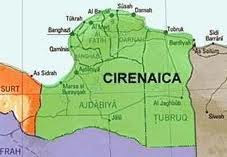As the country settles down to rule by a new and virtually democratic institution and prepares for a general election in the near future there seem to be structural weaknesses in the National Transitional Council (NTC) regime. The attempt in Cyrenaica to interpolate a federal system of government appears, however, to have failed from the very beginning. This should at least concentrate the minds of those candidates who will be taking part in the forthcoming elections either as individuals or as part of a political party list.
Amongst the negative impacts of the current period of uncertainty and confrontation is the on-going persistence of the problem of the militias which dominate the local scene in many parts of the country. The scale of the problem can be seen from the fact that the Islamic moderates in Misrata made no attempt to adopt democratic processes for all community transactions. Hopes that a number of women would come forward as representatives in Misrata's new council have been dashed and few indeed are willing to fight their corner in the current political climate.
Although seventy militia units are reported as being active many will eventually settle for a status of official acceptance and as bona fide members of the official security services. There are, however, vast differences between the integrated echelons of the militias who fought throughout the campaign against the Colonel Mu'ammar Qadhafi regime and the opportunists who appear to have gained the upper hand in winning control of many of the revolutionary brigades.
For more news and expert analysis about Libya, please see Libya Focus and Libya Politics & Security.
© 2012 Menas Associates
Subscribe to:
Post Comments (Atom)

No comments:
Post a Comment